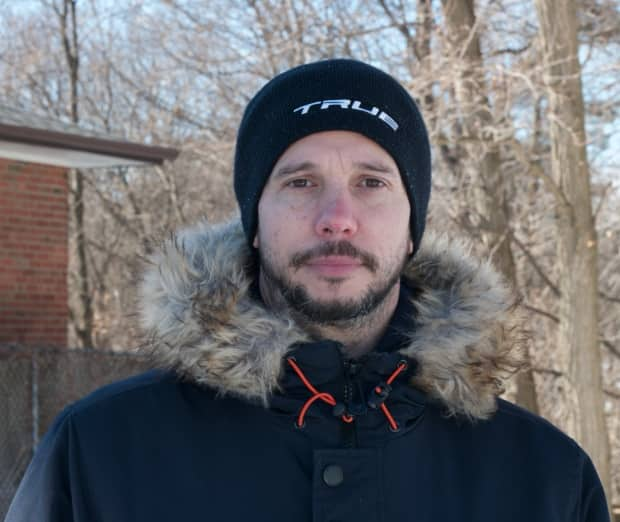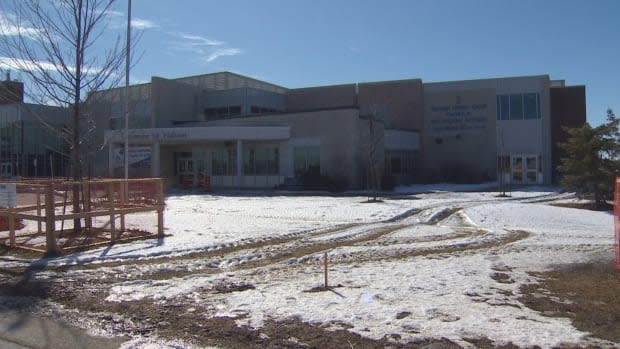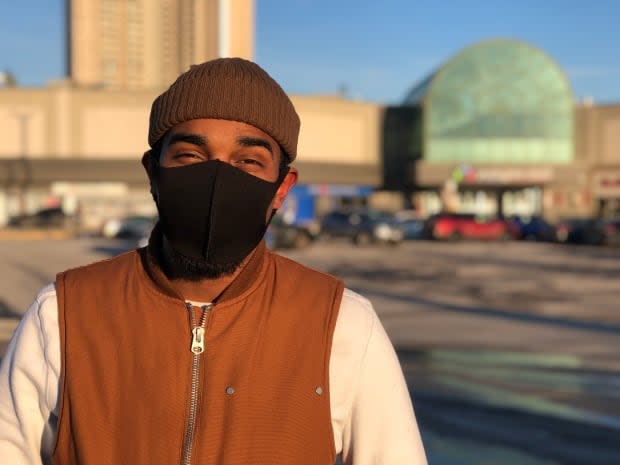'I couldn't let it go': How the expulsion of a Black student led a former vice-principal to quit

For 13 years, Paul Raso experienced different challenges working as a teacher and vice-principal in one of Toronto's most marginalized communities, but it was the way his school board handled the expulsion of one Black student — and the departure of that student's brother, as well — that Raso says finally pushed him to leave.
"I've seen a lot — enough for me to quit.... That was the catalyst," said Raso, who took a leave of absence after the incident, then left his job.
One brother was expelled in 2013, when Raso was a vice-principal at Father Henry Carr Catholic Secondary School, in the city's northwest. After that, the boy's brother also left classes due to concerns for his safety, Raso said.
In the weeks that followed, Raso pushed for them to both get the chance for a fresh start elsewhere.
"We advocated to keep them together. They were brothers. They were supportive," Raso said.
But after the expulsion, both were denied entry to another school and, according to Raso, no clear explanation was offered.
Raso said that as a result, the brothers weren't able to return to any classroom before the start of summer break. A month into summer break, one of them — who was 15 — was shot and killed in his neighbourhood.
CBC News is not naming the boy or his brother at the request of the family.
Raso said he's speaking out nearly eight years later because he continues to see problems with the way the Toronto Catholic District School Board (TCDSB) works with students from marginalized communities, such as the Jane-Finch neighbourhood.
Unlike the Toronto District School Board (TDSB), the Catholic board does not collect race-based data on what happens to expelled students — something advocates say is necessary to ensure students from certain communities aren't falling through the cracks.
The expulsion
Raso — who now runs the not-for-profit Education Involved Advocacy Group — said the expulsion was triggered by an incident in which a coloured bandana was waved in the face of other students. It was interpreted as an incitement of gang violence, he said.
The brothers were from the Jane-Finch community but were attending Father Henry Carr in Rexdale — which Raso said is considered a rival gang neighbourhood. After a third student from the Jane-Finch neighbourhood was transferred into the school, tensions began to build, he said.

"Kids just see numbers," Raso said. "Now there's three kids from Jane and Finch. So no matter what, I think those [three] kids would have been targeted."
After the expulsion, Raso said, staff and the school administration worked together with the board's Safe Schools program to determine where the boys should be moved. After extensive consultation, he said, it was determined that Dante Alighieri Academy Catholic Secondary School — southeast of the Jane-Finch neighbourhood — would be a safe and suitable place for them.
Raso said the plan was approved by the board's area superintendent and was outlined by email to the then-principal of Dante Alighieri Academy. CBC News obtained a copy of the email, which appears to show the principal's response as simply: "No, thank you," followed by the principal's initial.
"I was baffled — just floored. I mean, at this point, just distraught," said Raso, noting that he'd never seen such a response from a school principal.
"It's everything that's wrong with the community summed up in one email. So I couldn't let it go."
Two months after the boys were denied entry to the TCDSB school, one was shot and killed not far from his house.
Email 'taken out of context,' board says
CBC News reached out to the former principal of Dante Alighieri Academy about the email sent in response to the request to admit the brothers but did not receive a response.
In a statement to CBC News, the TCDSB said the board has a general rule that two people — regardless of whether they are brothers — who are involved in the same misconduct and are expelled aren't sent to the same school.
The board would not comment on the specifics of the expulsion, citing privacy legislation, but it maintains the former principal's comments in the email shared with CBC were "taken out of context."
The board says there are messages omitted from the exchange. However, it would not provide a copy of them, again citing privacy legislation.
The cost of losing education
The 15-year-old boy's killing remains a cold case, according to Toronto police, and was one of a string of fatal shootings involving teens in northwest Toronto over the span of a month.
While there's no known link between the expulsion and his shooting death, Raso said countless studies have shown the link between school attendance and the minimization of violence.
"The more people are engaged, the less they're likely to make poor choices," he said.
Abdulkadir Nur — who works with youth in the Jane-Finch neighbourhood at a community hub called The Spot — said school is an important form of stability for youth in the community. And while some might not show it, suspensions or expulsions can take a toll on them.

"School may be the highlight of their day, so they may not really have much else to do. Their parents may be working. They may have been looking forward to going to classes, seeing their friends, you know, seeing specific teachers and everything," Nur said.
"So I would imagine that they'd have an extremely hard time dealing with that."
"Think about the cost of what happens when a child, a young person, a young Black child doesn't get the necessary kind of education that he should be getting," said Carl E. James, a professor in the education faculty at York University in Toronto who holds the Jean Augustine Chair in Education, Community and Diaspora.
"Think about the kind of education that he's not getting, the kinds of opportunities that get him to learn that would inform a trajectory."
Race-based data
James has studied other school boards in the Greater Toronto Area, and his research shows that Black students are more likely to be suspended from school.
In recent years, the Toronto District School Board, unlike the TCDSB, began collecting race-based data on suspensions, which includes a followup on what happens to students after they are disciplined to see if they are able to continue their education.

"Why hasn't [the TCDSB] been keeping data? How can you continue with students, working with them and addressing the issues, without data?" James asked.
The TCDSB says it does track what happens to students who are suspended and expelled and provides them with a number of supports, including the option to attend a long-term suspension program.
"Suspended/expelled students continue to receive access to academic and social-emotional supports provided by the board and TCDSB social workers make every effort to contact a student and encourage them to continue with their education," the board told CBC News.
Pushing for change
Raso said that in his work as an advocate for parents and students in the Jane-Finch community, he continues to see students shuffled to schools where they aren't safe, and he's calling on the TCDSB to take into account the nuances of neighbourhoods and the challenges some students find themselves in.
"We've got to deal with shuffling kids around from neighbourhoods that fight. And they either feel the need to stand their ground or feel the need to keep themselves safe," he said.

Raso said he still sees students either denied entry into schools where they could be safe or shuffled into schools where they are unsafe.
"There are ways to get innovative with education in these communities. And we're still doing the same thing," he said.
"I don't want to go to any more funerals."
For more stories about the experiences of Black Canadians — from anti-Black racism to success stories within the Black community — check out Being Black in Canada, a CBC project Black Canadians can be proud of. You can read more stories here.


